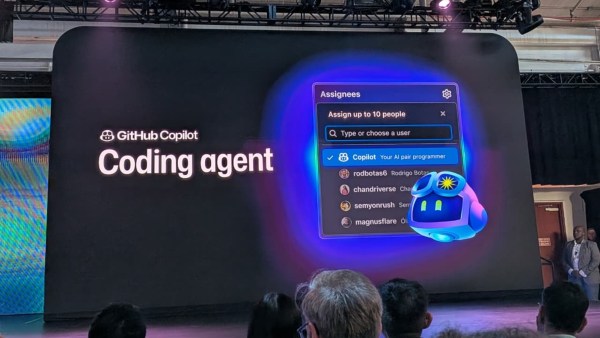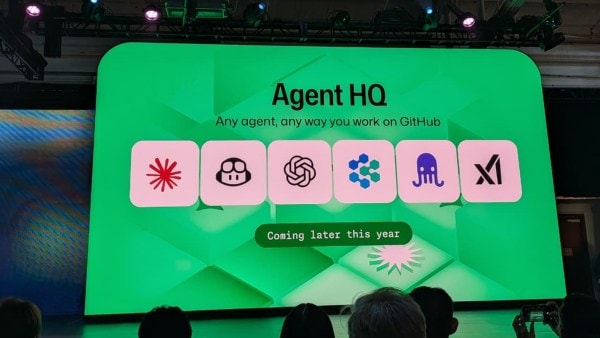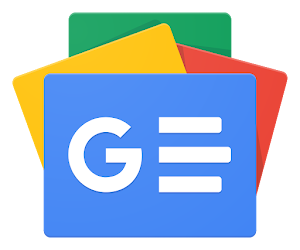Onstage at Universe 2025, GitHub’s annual event, the company’s Chief Operating Officer, Kyle Daigle, told developers that “GitHub has always done what it does best – fixing developer pain around how developers build, while still allowing you to choose how you want to build.” That may be the biggest takeaway, perhaps the fundamental principle behind the Microsoft-owned developer platform especially at a time when artificial intelligence is reshaping software development.
Daigle put every developer and enterprise on notice with AI-assisted software development, echoing the broader trend emerging across Silicon Valley. More importantly, GitHub is going all in on being developer-focused, a core part of what the company does best.
As tech executives pitch “AI agents”, digital helpers that can perform tasks on your computer as the next big thing in artificial intelligence, GitHub is making a bold bet that enterprises don’t need yet another proprietary agent. Instead, it’s giving developers a choice through a “mission control” interface that allows them to manage multiple AI coding agents from leading AI research labs on a single platform.
Story continues below this ad
 Third-party agents will begin rolling out to GitHub Copilot subscribers in the coming months, while Copilot Pro+ users will be able to access OpenAI Codex in VS Code Insiders starting this week, the company said
Third-party agents will begin rolling out to GitHub Copilot subscribers in the coming months, while Copilot Pro+ users will be able to access OpenAI Codex in VS Code Insiders starting this week, the company said
The new architecture, called Agent HQ, transforms GitHub into a unified control plane for managing multiple AI coding agents from key competitors including Anthropic, OpenAI, Google, Cognition, and xAI – all in one place. This means users will have access to a command center where they can assign, steer, and monitor the work of multiple agents in real time.
Third-party agents will begin rolling out to GitHub Copilot subscribers in the coming months, while Copilot Pro+ users will be able to access OpenAI Codex in VS Code Insiders starting this week, the company said.
Github is owned by Microsoft. The company was founded in 2007 but Microsoft acquired in 2018 for $7.5 billion in stock, and and Microsoft CEO Satya Nadella said at the time that the deal would “strengthen our commitment to developer freedom, openness and innovation.”
GitHub, founded in 2007, is owned by Microsoft. The tech giant acquired the company in 2018 for $7.5 billion in stock, and at the time, Microsoft CEO Satya Nadella said the deal would “strengthen our commitment to developer freedom, openness, and innovation.”
Story continues below this ad
For Microsoft, GitHub is central to its overall strategy, especially with the rise of generative artificial intelligence. The platform serves as a bridge to engage developers and bring them into Microsoft’s ecosystem – Windows, Azure, and its suite of AI tools. In fact, GitHub is seen as the central hub where developers get their work done.
 As Microsoft invests billions of dollars each year in artificial intelligence infrastructure and development, GitHub is seen as a gateway to bringing AI-powered copilots across Microsoft’s product portfolio
As Microsoft invests billions of dollars each year in artificial intelligence infrastructure and development, GitHub is seen as a gateway to bringing AI-powered copilots across Microsoft’s product portfolio
GitHub is a code-hosting platform that allows coders to collaborate on open-source projects. The company calls itself the world’s leading software development platform and says that over 180 million developers and 90 per cent of Fortune 100 companies use GitHub. The platform continues to grow at a rapid pace.
In 2021, GitHub launched Copilot in collaboration with Microsoft and OpenAI. The offering, which suggests code for developers to add to their projects, has been adopted by a wide range of users with the goal of making engineers more productive.
GitHub has maintained an edge from the start, even as artificial intelligence is increasingly being used to write code and assist in software development. A number of new code-sharing platforms, such as Cursor creator Anysphere, Replit, and Windsurf (whose CEO was recently hired by Google), have emerged. At the same time, the craze for vibe coding has swept Silicon Valley, bringing AI deeper into the coding process and making programming more accessible to those with little formal training. However, this shift has also introduced trade-offs that developers continue to weigh.
Story continues below this ad
As Microsoft invests billions of dollars each year in artificial intelligence infrastructure and development, GitHub is seen as a gateway to bringing AI-powered copilots across Microsoft’s product portfolio- one reason the company is doubling down on GitHub’s AI projects. In January, CEO Satya Nadella announced the formation of the Core AI Platform and Tools Group, led by former Meta executive Jay Parikh. While GitHub has operated largely independently since Microsoft acquired it eight years ago, it is now being more closely integrated into Microsoft’s broader ecosystem.
Copyright for syndicated content belongs to the linked Source link





